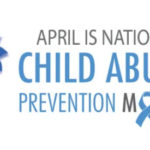By AmyBeth Taublieb, PhD
This following is one of a series of monthly articles to help BHL readers become more familiar with various psychological/psychiatric disorders.
Formerly referred to as manic depression, bipolar disorder is an emotional disorder characterized by feelings of depression alternating with extreme high moods, known as mania or hypomania. People with bipolar 1 experience depression most of the time, but also experience mania. People with bipolar 2 experience a longer, more intense depression, with less severe manic episodes or hypomania.
Most of us are familiar with symptoms of depression – sadness, lack of motivation, inability to enjoy activities, sleep problems, eating problems, feelings of hopelessness, and even thoughts of self-harm or suicide. People with bipolar disorder experience some combination of these feelings during the depressive phases of bipolar disorder.
When clinicians speak of mania, the symptoms generally include an overall “high” feeling during which the individual has excessive energy, and often engages in impulsive behaviors, such as promiscuity, spending, or gambling. During mania, individuals are often easily angered and excitable, have racing thoughts, and may be unable to concentrate. The term hypomania refers to the same symptoms as mania, but to a less severe degree. In complete contrast to depression, individuals with symptoms of mania or hypomania tend to enjoy the experience, which makes the swing over to depressive symptoms even more painful.
How is bipolar disorder treated?
In most cases, bipolar disorder is treated with a combination of psychiatric medications and psychotherapy. Such medications help with getting symptoms under control, and psychotherapy helps individuals with bipolar develop coping strategies to engage in a satisfying productive life. Typically, bipolar disorder is extremely treatable as long as the person is consistent in complying with prescribed treatment interventions.
How do I know if I have bipolar disorder?
We all have variations in our moods, but if you find that your mood changes frequently and that the feelings you experience are so extreme that they interfere with your day-to-day functioning, it is important to consult with your primary care physician. Depending upon your symptoms, your primary care provider may then refer you to a mental health professional for an accurate diagnosis and appropriate treatment.
Dr AmyBeth Taublieb is a licensed clinical psychologist, author, media personality, and public speaker. She maintains a private practice in Western New York providing psychotherapy and assessments for individuals, couples, and families. Contact Dr. Taublieb at 716-834-1505 to make an appointment, or visit her website at www.dramybeth.com.












